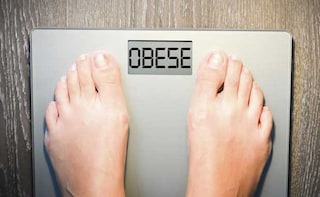You may be putting on a little extra kilos, and you assure yourself that you will shed those in the days to come and get back on track. Only problem is that you keep postponing your fitness routine because you are occupied with several other daily activities which leave behind no time for anything else. And sadly, one's own fitness often takes a backseat. That's what leads to being overweight, and then to a bigger problem of obesity. Recent reports state that one of the major diseases affecting the Indian population today is obesity. The truth is that it doesn't just stop there - obesity is one of the root causes of various other diseases like diabetes, heart diseases, depression, etc.
Lead author of the study, Professor Peter Dolton, University of Sussex, Britain said, "This shows that the children of obese parents are much more likely to be obese themselves when they grow up - the parental effect is more than double for the most obese children as compared to what it is for the thinnest children." The study was published in the journal Economics and Human Biology. The team used data on the heights and weights of 100,000 children and their parents spanning six countries worldwide: the Britain, US, China, Indonesia, Spain and Mexico.The results showed that the intergenerational transmission of BMI is approximately constant at around 0.2 per parent - i.e. that each child's BMI is, on average, 20 per cent due to the mother and 20 per cent due to the father. Professor Dolton noted, "These findings have far-reaching consequences for the health of the world's children. They should make us rethink the extent to which obesity is the result of family factors, and our genetic inheritance, rather than decisions made by us as individuals." Therefore genetical configuration along with home environment has huge influence on a child's metabolism.With inputs from IANS
Lead author of the study, Professor Peter Dolton, University of Sussex, Britain said, "This shows that the children of obese parents are much more likely to be obese themselves when they grow up - the parental effect is more than double for the most obese children as compared to what it is for the thinnest children." The study was published in the journal Economics and Human Biology. The team used data on the heights and weights of 100,000 children and their parents spanning six countries worldwide: the Britain, US, China, Indonesia, Spain and Mexico.The results showed that the intergenerational transmission of BMI is approximately constant at around 0.2 per parent - i.e. that each child's BMI is, on average, 20 per cent due to the mother and 20 per cent due to the father. Professor Dolton noted, "These findings have far-reaching consequences for the health of the world's children. They should make us rethink the extent to which obesity is the result of family factors, and our genetic inheritance, rather than decisions made by us as individuals." Therefore genetical configuration along with home environment has huge influence on a child's metabolism.With inputs from IANS
For the latest food news, health tips and recipes, like us on Facebook or follow us on Twitter and YouTube.
Advertisement
